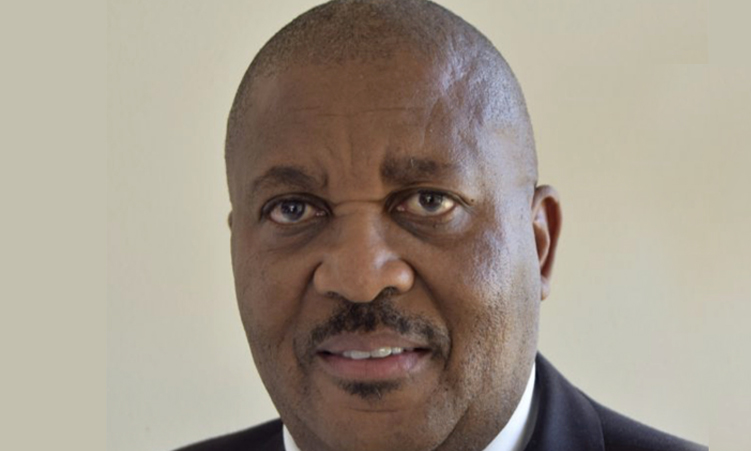It was with profound sadness that I learnt of the death of president Hage Geingob, a distinguished scholar, a reputable administrator and a visionary leader, who also happened to be my neighbour at the farm at Otavi.
When Geingob was appointed prime minister of Namibia after independence, as a young man, I followed him with keen interest as to how he was administering government affairs at the time.
I admired his administrative skills and his charismatic leadership style as prime minister and his passion towards vocational education and training.
He was an obvious choice of a leader that we as management at the Windhoek Vocational Training Centre (WVTC), under my leadership as principal, decided to invite him to officiate at our third graduation ceremony on 7 July 2000.
With the approval of our of board of directors and line minister at the time, Nahas Angula, we extended an invitation to Geingob to both officiate and deliver the keynote address.
He accepted our invitation without any hesitation. What a memorable occasion it was for us to be accorded such an honour by a distinguished leader.
It was my first encounter with Geingob and I could not believe that I was sitting to the left of the prime minister at the high table. I must admit that as a young man at the time, I was so frightened of addressing the audience in his presence, although overjoyed to be seated next to him.
Nonetheless, as invited speakers were delivering their speeches before the keynote address, the two of us had a conversation on the sidelines as I narrated some of WVTC’s activities.
He whispered in my ear, “young man, you are doing a great job”. Little did I know that our leaders were watching what we were doing as a centre. His words brought total joy and calmness to me, and that’s when I realised he was a people’s person.
Fast forwarding, before Geingob became the head of state of Namibia, vocational education and training (VET) was not receiving the prominence it deserved.
When he was appointed president, he decided to split the education ministry into two ministries – the Ministry of Education, Arts and Culture and the Ministry of Higher Education, Technology and Innovation.
With the creation of the higher education ministry in 2015, VET started getting the prominence it deserved.
Alongside solidifying the Namibian house, Geingob also championed the Harambee Prosperity Plan 1 (HPPI), an accelerated plan to achieve the aspirations of Vision 2030. Having an interest in the prosperity of the Namibian people and economic development of this country, Geingob ensured that Namibia had the right technical and vocational skills to take the country forward.
The late Geingob stated the following in the HPPI document: “Namibians have overcome tremendous historical obstacles in the past and through the Harambee Prosperity Plan, I am confident that we will rise to the challenges of the present and those we will encounter in the future. This plan ushers Namibia into the era of prosperity for all.”
Being a proponent for technical, vocational education and training (TVET) myself, what stood out for me in the HPPI document was the following.
“Developed economies were not built by PhD holders but by craftsmen and artisans. We cannot expect development without these requisite skills.”
I personally fully subscribe to this notion because most developed nations across the world have developed because of TVET skilled people who are building and shaping their economies.
The HPPI document set the following strategies:
- • Vocational education training expansion:
- • Recognition of prior learning:
- • Improve quality of VET provision:
- • Improve the image of VET:
- • Apprenticeship and funding:
I am happy to report today that the goals as set out in HPPI document were achieved as follows:
- • Vocational education training expansion: Today, all 14 political regions in the country have a public TVET centre. The number of private TVET providers has also increased significantly over the years. It is equally important to mention that enrollment at TVET centres increased significantly, from 1 200 in 2000 to over 34 000 today.
- • Recognition of prior learning: A system was introduced to recognise technical and vocational related skills of persons, acquired outside any formal education system.
- • Improve the quality of VET provision: The sector has upgraded most of the public TVET centres and efforts are currently underway to improve the quality of TVET practitioners and trainers.
- Improve the image of TVET: TVET was previously perceived as a second educational choice stream. Today, the image of TVET image has improved significantly, to the extent that more and more school leavers are opting to pursue career choices in TVET.
- • Apprenticeship and funding: The apprenticeship system was re-introduced and more companies are participating in the apprenticeship scheme than ever before. Also, the VET levy was introduced to ensure sufficient funding towards the sector.
The above are just some of the TVET sector’s achievements under the leadership of president Geingob. Although not all strategies under HPPII targeting the TVET sector have been realised, efforts by the relevant line ministry and agencies are still busy ensuring that they are accomplished.
Building a country’s economy only requires visionary leaders, and one such leader was the late Geingob, who put TVET at the forefront. For Namibia to become an economic powerhouse, we need TVET skilled people.
I want to make a clarion call to all those involved with the implementation of TVET in this country to ensure that the TVET legacy left behind by our beloved president continues to flourish for many years to come.
I would like to extend my heartfelt condolences to madam Monica Geingos, the children and the entire extended Geingob family during this time of mourning our beloved president.
May his beloved soul rest in eternal peace.
*Raimo Ndapewa Naanda is a TVET expert and the deputy executive director in the Ministry of Higher Education, Technology and Innovation
Stay informed with The Namibian – your source for credible journalism. Get in-depth reporting and opinions for
only N$85 a month. Invest in journalism, invest in democracy –
Subscribe Now!






